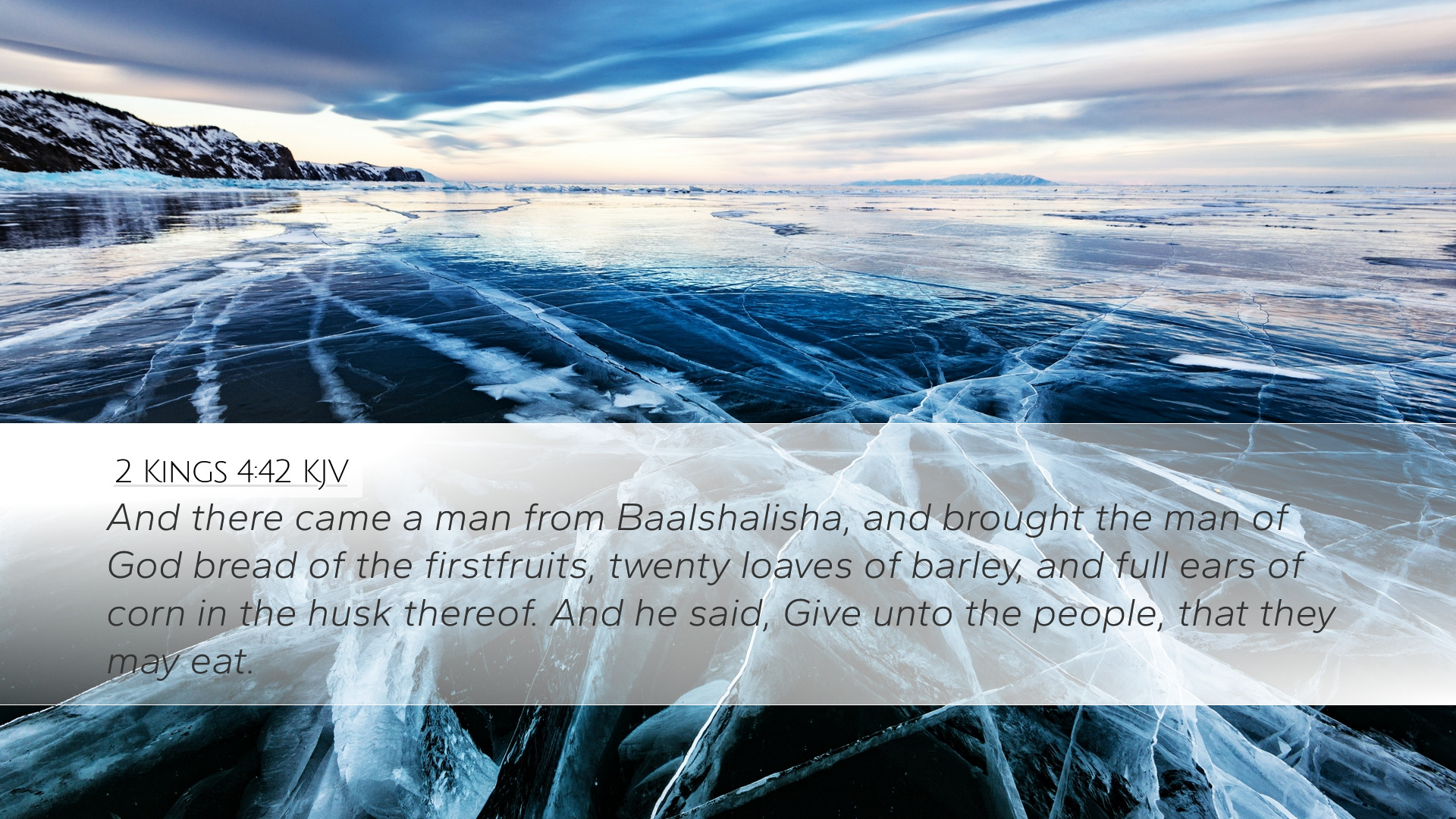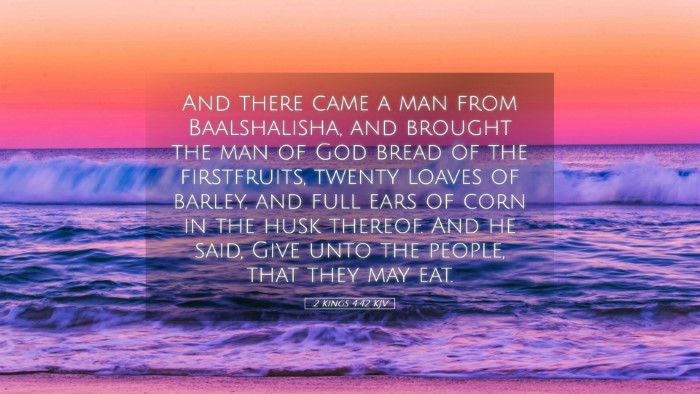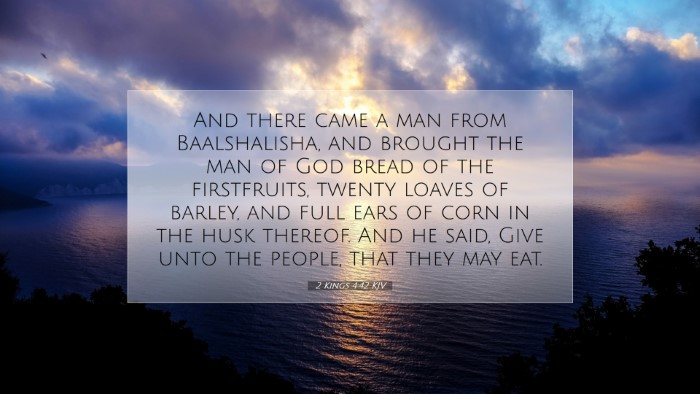Commentary on 2 Kings 4:42
In 2 Kings 4:42 we find a remarkable incident that demonstrates God's providence and the power of Elisha's ministry. The verse states:
“And there came a man from Baal-shalisha, and brought the man of God bread of the firstfruits, twenty loaves of barley, and full ears of corn in the husk thereof. And he said, Give unto the people, that they may eat.”
This passage reflects several profound themes that merit deeper exploration. Below, we summarize the insights gleaned from various public domain commentaries by Matthew Henry, Albert Barnes, and Adam Clarke.
Contextual Background
To fully grasp the significance of this verse, one must consider the historical and cultural context of the time. Elisha, the prophet, continues the prophetic ministry established by Elijah, providing guidance and miracles to the people of Israel.
- Elisha's Role: Elisha is established as God's spokesperson among the Israelites, signifying the continuity of divine communication.
- Baal-shalisha: The mention of this location indicates a specific geographical setting that highlights the regional practices concerning agriculture and firstfruits.
Insights from Commentaries
Matthew Henry's Commentary
Henry emphasizes the significance of the man from Baal-shalisha as a representative of the people who recognize Elisha’s authority. The act of bringing the 'bread of the firstfruits' indicates a proper acknowledgment of God’s provisions:
- Symbol of Devotion: The firstfruits symbolize the Israelites’ gratitude to God for His blessings, reflecting an important tradition of offering to God.
- Provision for the Prophet: The generous act of the man shows the communal responsibility to support the ministry of the prophet, underscoring the value of service and generosity.
Albert Barnes' Commentary
Barnes adds another layer, interpreting the 'twenty loaves of barley' as significantly insufficient in the face of the growing needs of Elisha's followers. This introduces themes of scarcity and divine sufficiency:
- Miracle of Multitude: Barnes notes the miraculous nature of the subsequent events where God uses the small amount of food to satisfy many. This foreshadows Christ's later miracles.
- Lessons on Faith: The response to Elisha highlights a lesson in faith – trusting God's ability to multiply what seems inadequate.
Adam Clarke's Commentary
Clarke provides a critical look at the details, emphasizing the elements of faith and obedience in Elisha’s command when he instructs the servants to distribute the food:
- Faith in Action: Clarke stresses that the request to give the bread to the people, despite the seeming insufficiency, embodies faith that God's provision is enough.
- God's Blessing on Efforts: The act serves as a testament that when God's will is followed, His blessings will accompany those efforts, producing outcomes beyond expectations.
Theological Implications
This verse encompasses rich theological implications:
- God's Care for His People: The event illustrates God’s ongoing care for His people, reminding us that He sees our needs and responds generously.
- Community and Sharing: The focus on communal sharing highlights the importance of philanthropy and supportive relationships within faith communities.
- Trust in Divine Provision: Like the followers of Elisha, today’s believers are called to trust God’s provision, even in challenging circumstances.
Applications for Pastors, Students, and Scholars
For pastors, this passage serves as a valuable reminder of God’s ability to provide. It encourages them to cultivate faith within their congregations:
- Encourage Generosity: Pastors can use this scripture to inspire church members to contribute to ministry needs generously.
- Communicate God’s Omnipotence: Highlighting the miraculous multiplication of resources can reinforce the message that God can provide abundantly above all we ask or think (Ephesians 3:20).
For students and scholars, engaging with this text invites further research into:
- Literary Structure: Examining how this passage fits within the broader narrative of the Kings and its theological significance.
- Comparative Studies: Analyzing parallels between this miracle and those performed by Jesus, exploring themes of sustenance and divine provision.


